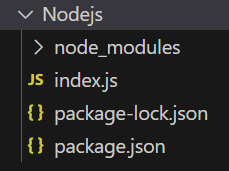Express app.listen() Function
Last Updated :
01 Jan, 2024
app.listen() in Express is like telling your app to start listening for visitors on a specific address and port, much like how Node listens for connections. The app, created by `express()`, is just a handy function that handles different types of requests, making it easy to serve both HTTP and HTTPS versions of your app without extra complexity.
Syntax:
app.listen([port[, host[, backlog]]][, callback])
Parameters:
- Port: It specifies the port on which we want our app to listen.
- Host (Optional): It specifies the IP Address of the host on which we want our app to listen. You can specify the host if and only if you have already specified the port. ( since you have a closing(‘]’) bracket after ([, host[, backlog]]) as you can see in the above syntax, so this means the port must be specified before specifying host and backlog).
- Backlog (Optional): It specifies the max length of the queue of pending connections. You can specify the backlog if and only if you have already specified the port and host. ( since you have a closing bracket after ([, backlog]), so this means you will have to specify the host before specifying backlogs)
- Callback (Optional): It specifies a function that will get executed, once your app starts listening to the specified port. You can specify callback alone i.e., without specifying port, host, and backlogs.( since this is a separate set of arguments in opening and closing brackets([, callback]), this means you can specify these arguments without specifying the argument of previous opening and closing square brackets.
Steps to Install the express module:
Step 1: You can install this package by using this command.
npm install express
Step 2: After installing the express module, you can check your express version in the command prompt using the command.
npm version express
Project Structure:

Project Structure
The updated dependencies in package.json file will look like:
"dependencies": {
"express": "^4.18.2",
}
Example 1: Below is the code of app.listen() Function implementation.
Javascript
const express = require('express');
const app = express();
const PORT = 3000;
app.listen(PORT, function(err){
if (err) console.log("Error in server setup")
console.log("Server listening on Port", PORT);
})
|
Steps to run the program:
Run the index.js file using the below command:
node index.js
Output:
Server listening on Port 3000
So this is how you can use the Express app.listen() function which Binds and listens for connections on the specified host and port.
Like Article
Suggest improvement
Share your thoughts in the comments
Please Login to comment...